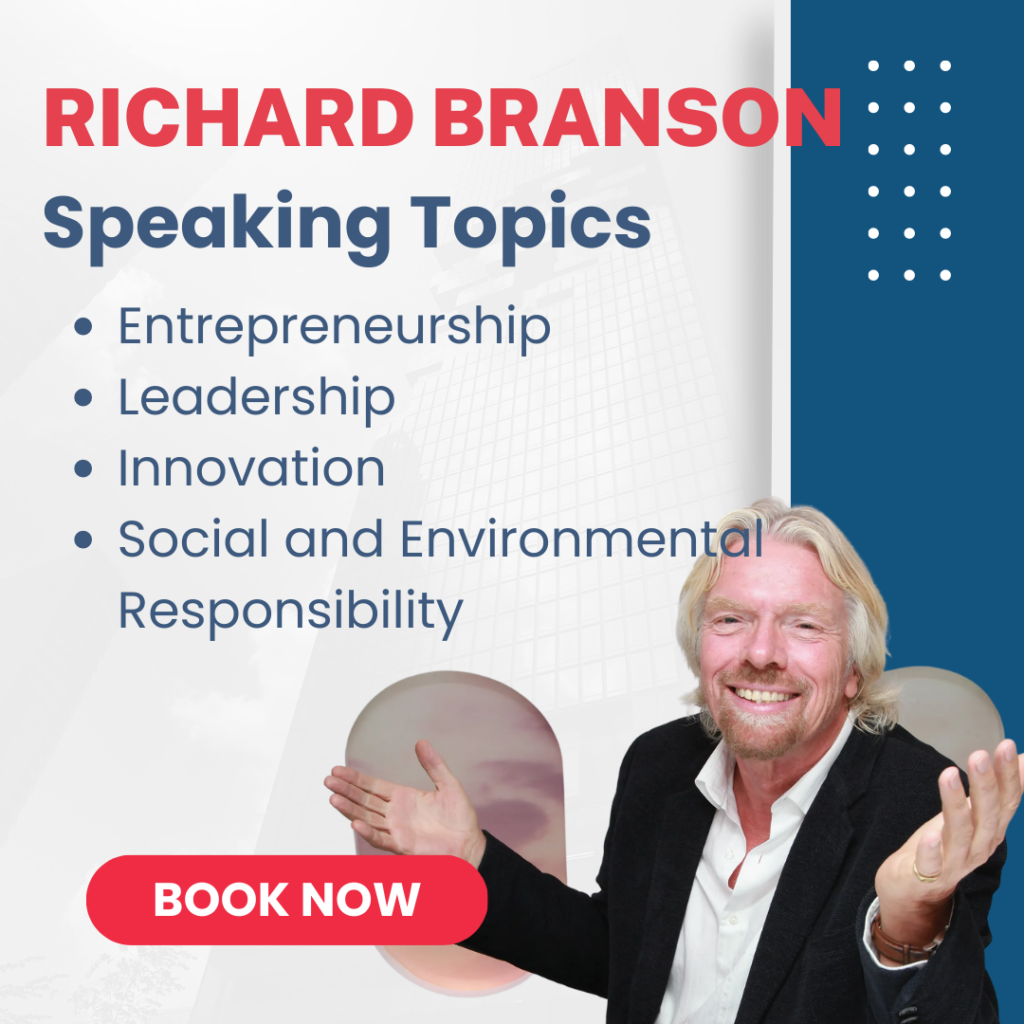
How To Book A Keynote Speaker
If you have ever planned an event or conference, you know the importance of having a captivating keynote speaker. A great keynote speaker can set the tone of the event, inspire the audience and provide valuable insights and information to attendees. However, booking the right keynote speaker for your event is easier said than done. In this article, we will guide you through the process of booking a keynote speaker with ease and confidence.
Understanding the Importance of a Keynote Speaker
Keynote speakers can be a great addition to any event. But before we look at how to book one, let’s consider their role and impact on the event.
Defining the role of a keynote speaker
A keynote speaker is the primary speaker for an event, usually delivering a talk or presentation that sets the tone and provides a theme for the rest of the proceedings. They often provide an overview of the event, talk about their own experiences and expertise, and provide insight, inspiration and advice for the attendees. A great keynote speaker can provide a significant boost to the event’s success and contribute to the event’s messaging and objectives.
For example, imagine a business conference where the keynote speaker is a successful entrepreneur who has built a multi-million dollar company from scratch. The speaker could share their story of success, the challenges they faced along the way, and the lessons they learned. They could also offer valuable advice on how to start and grow a business, inspiring the attendees to take action and pursue their own entrepreneurial dreams.
The impact of a great keynote speaker on your event
Hiring a great keynote speaker can make or break your event. It can be the difference between an average event and one that your audience will remember for a long time. A great speaker can motivate your attendees, stimulate conversations and inspire actions far beyond the event itself. They can also bring authority, credibility and prestige to the event, making it more attractive for potential attendees.
For instance, a medical conference could have a keynote speaker who is a renowned scientist in their field. The speaker could share their latest research findings, cutting-edge technologies, and innovative treatments that could revolutionize the medical industry. The attendees would be inspired and motivated to apply the knowledge gained from the keynote speech to their own research and practice, leading to significant advancements in the field.
In conclusion, a keynote speaker can have a significant impact on the success of an event. They can provide valuable insights, inspiration, and advice to the attendees, as well as bring authority and credibility to the event. Therefore, it is important to carefully select the right keynote speaker that aligns with the event’s messaging and objectives.
Identifying Your Event’s Needs and Goals
Booking the right keynote speaker for your event can be a daunting task. However, it is essential to ensure that your event is memorable and successful. The first step in achieving this is identifying your event’s needs and goals.
Before you start looking for a keynote speaker, you need to determine the event’s objectives. What do you want to achieve with your event? Is it to educate, inspire, or entertain your audience? Once you have defined your event’s purpose, you can move on to the next step.
Determining your event’s theme and message
The event’s theme and message are crucial in setting the tone for the event. It is essential to involve your team in brainstorming and determining the core message of the event. This will help you identify potential speakers who can reinforce that message and contribute to the event’s objectives.
When selecting a keynote speaker, you need to consider how their message aligns with your event’s theme. For instance, if your event’s theme is innovation, you might want to look for someone who has experience in the field and can offer insights that will inspire your audience.
Take some time to consider the audience’s interests and expectations and how the speaker can meet those needs. You want to ensure that the speaker’s message resonates with your audience and leaves a lasting impression.
Assessing your audience’s expectations
One of the most critical factors to consider when selecting a keynote speaker is your audience. You need to think about your audience’s demographics and interests to ensure that the speaker’s message is relevant and engaging.
If your audience comprises entrepreneurs, you might want to look for someone with expertise in entrepreneurship who can offer insights that will pique their interest. Similarly, you need to consider the attendees’ level of knowledge and understanding of the subject matter to ensure that the keynote speaker can deliver content that is engaging, relevant, and informative.
It is also essential to consider your audience’s expectations. What do they want to gain from attending your event? Are they looking for inspiration, education, or entertainment? Understanding your audience’s expectations will help you select a speaker who can meet those needs.
In conclusion, selecting the right keynote speaker for your event can be challenging, but it is essential to ensure that your event is successful. By identifying your event’s needs and goals, determining the theme and message, and assessing your audience’s expectations, you can select a speaker who will leave a lasting impression on your audience.
Researching Potential Keynote Speakers
Now that you know your event’s needs and goals, it’s time to research potential keynote speakers who fit those needs. The following steps will guide you through the research process.
Utilizing speaker bureaus and agencies
A great place to start is by using speaker bureaus and agencies. These organizations specialize in matching speakers with events and can suggest several options that fit your event’s needs, budget, and theme. Speaker bureaus and agencies can save you time and money by doing the background research on the speakers, their experience, and their fees. They can also provide additional negotiation power where possible.
Speaker bureaus and agencies have a vast network of speakers in various industries and niches. They can provide you with a list of speakers who have a proven track record of delivering engaging and informative keynote speeches. Additionally, they can help you identify speakers who have unique and innovative ideas that align with your event’s theme and goals.
When working with speaker bureaus and agencies, it’s essential to communicate your event’s needs and goals clearly. This will help them identify the best speakers for your event and ensure that you get the most value for your investment.
Exploring industry-specific speakers
You can also consider looking for speakers within your industry who have relevant experience and expertise. Your industry peers, colleagues, or mentors can offer valuable insights and recommendations. Doing this gives you a better chance of finding a speaker with industry-specific insights, who can understand and address your industry’s challenges.
Industry-specific speakers can share their experiences and insights, providing attendees with valuable takeaways that they can apply in their work. Additionally, industry-specific speakers can help attendees stay up-to-date with the latest trends and best practices in their field.
Seeking recommendations and referrals
Another way to find a great keynote speaker is by word-of-mouth referrals. Ask colleagues, industry associations, or other networking groups and communities for recommendations. You can shortlist a few speakers and conduct background research on them. Look for reviews, testimonials, and past clients to evaluate the speaker’s relevance, experience, and performance.
Referrals from trusted sources can help you identify speakers who have a proven track record of delivering engaging and informative speeches. Additionally, referrals can help you find speakers who have a unique perspective and can offer fresh insights on your event’s theme and goals.
When seeking referrals, it’s essential to communicate your event’s needs and goals clearly. This will help your network identify the best speakers for your event and ensure that you get the most value for your investment.
Evaluating Speaker Qualifications and Fit
Once you have shortlisted a few potential speakers, the next step is to evaluate their qualifications and suitability. Here’s how:
Reviewing speaker portfolios and past performances
Review the speakers’ portfolio of presentations and videos of their past performances, if available. This helps you understand their speaking style, content and expertise. You can often find this on their website or through the speaker agencies.
Assessing speaker expertise and credibility
Ensure that the speaker is an expert in the area they claim to be by researching their qualifications, experience and publications. Look for industry awards, accolades and credible industry publications they have contributed to. You can also review their social media presence and website to build an understanding of their credibility.
Ensuring speaker alignment with your event’s goals
Ensure the speaker has relevant content and can align with your event’s messaging and objectives. Getting feedback from participants about the speaker post-event is another way to evaluate a speaker’s effectiveness. This helps you assess whether they met the audience’s expectations and if their presentation was aligned with the event’s goals.
Budgeting and Negotiating Speaker Fees
Once you have found your ideal speaker, you need to negotiate terms and fees. Use the following steps to help you through the negotiation process:
Understanding the factors that influence speaker fees
Speaker fees can vary from a few thousand dollars to a few hundred thousand dollars depending on their experience, reputation, travel costs, and more. Before you make an offer, it’s good to research the industry standard rates, and how the factors impacting fees apply to your speaker. Your research can help you negotiate a fair offer.
Tips for negotiating a fair and reasonable fee
When negotiating speaker fees, always consider the speaker’s expertise, reputation, and experience, and the overall value they bring to the event. Offer a clear understanding of the speaking duration, the expected content, and the expectations around a theme. Be upfront about how much you can afford to pay and what you expect in return. You can also offer some form of promotion or marketing opportunity for the speaker’s business where possible. Finally, try to be flexible with your budget and see if there are any areas that the speaker can adjust when discussing the terms.
Considering additional expenses and logistics
Remember to consider additional expenses such as travel costs, accommodation, meals, security, technical requirements, and any other relevant logistics. Always ask the speaker or agent to provide a breakdown, so you know what is included and be sure to review the contract carefully to avoid unexpected expenses later on.
Conclusion
Booking a keynote speaker can be a daunting task, but following the tips and steps we have outlined can help you find the right speaker and make the process smoother. Remember to define your needs and goals, research potential speakers, evaluate qualifications, and budget and negotiate appropriately. With proper preparation and care, booking a keynote speaker can lead to a successful event with lasting impact.




